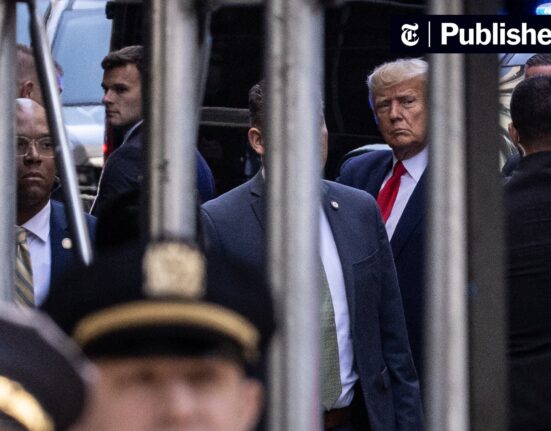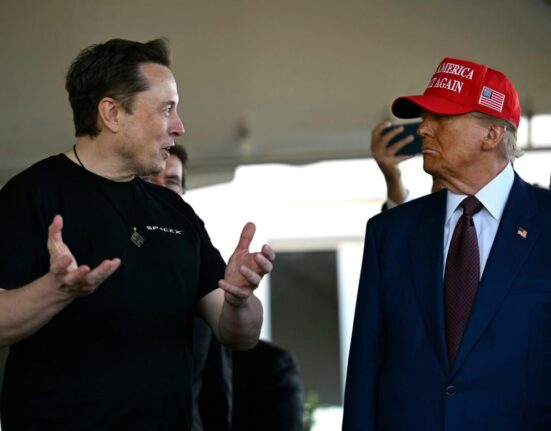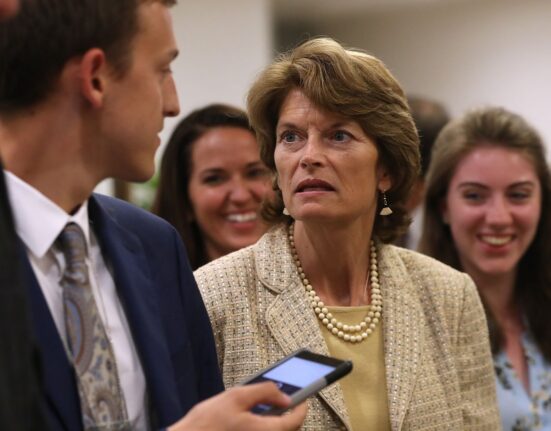Under the watchful eyes of Secretary of State Marco Rubio and German Foreign Minister Johann Wadephul, a curious dynamic unfolded at the U.S. State Department. The winds of change were blowing strong, raising questions about Europe’s commitment to democracy in the eyes of the Trump administration.
The recent developments have sparked conversations and debates across diplomatic circles as Washington takes aim at its traditional allies in Western Europe over concerns related to free speech and democratic principles. While President Donald Trump had initially proclaimed a hands-off approach towards foreign policy lectures, his administration seems to be pivoting towards a more critical stance, especially when it comes to autocracies around the globe.
A notable move in this shift is the establishment of a dedicated office within the State Department focusing on
“natural rights”
and what officials deem as
“free speech backsliding”
in Europe. This strategic maneuver underscores a deeper concern within the administration regarding perceived erosions of fundamental liberties in European nations.
### A Closer Look at Allegations
In an unprecedented step, American delegates were dispatched to Europe on a fact-finding mission aimed at assessing freedom of expression standards. Simultaneously, Secretary of State Marco Rubio did not mince words when he accused European officials of targeting American citizens through their social media policing efforts, leading to new visa restrictions.
The narrative put forth by Samuel Samson, a young appointee representing Trump’s administration, further fueled these claims by painting Europe as a breeding ground for digital censorship and other transgressions against democratic norms. Such assertions have left many European counterparts perplexed given America’s own challenges with upholding democratic values amidst internal strife.
### Expert Insights: Missing the Mark
Critics argue that by disproportionately scrutinizing Europe while turning a blind eye to more severe violations elsewhere globally, the U.S. risks diminishing its credibility on matters of democracy and human rights. This skewed focus has raised eyebrows among former government officials who find it ironic that America is reprimanding others for issues it grapples with domestically.
Michael Posner, an esteemed figure from the Obama era known for championing democracy and human rights causes during his tenure at the State Department, expressed disappointment over this selective attention towards Europe while neglecting other regions facing dire challenges to basic freedoms.
### Unraveling Policy Shifts
As part of this recalibration towards old allies like those in Western Europe, subtle yet significant policy adjustments are being rolled out by Washington. The creation of an
“Office of Natural Rights”
signifies a deliberate emphasis on core freedoms rooted in Western traditions rather than generic human rights frameworks—a distinction that echoes past controversial initiatives under former Secretary Mike Pompeo.
Furthermore, high-profile figures like Vice President JD Vance have added fuel to this fire by castigating European leaders for what they perceive as undue restrictions on free speech and political affiliations within their respective countries. These criticisms have not gone unnoticed abroad but have instead stirred discussions about defending democratic values amidst rising global uncertainties.
### Delays & Disruptions
Central to this evolving narrative is the delayed release of America’s annual human rights report—a crucial document shedding light on global abuses and violations compiled meticulously over nearly half a century. However, undercurrents suggest that revisions aligning with Trump’s worldview are causing setbacks amid concerns about omitted references to state-sponsored injustices worldwide.
The intricate dance around immigration policies interweaving legal battles further complicates matters as constitutional boundaries face tests amid escalating crackdowns under Trump’s directives. Such entanglements underscore broader rifts between ideological stances shaping international discourse around freedom versus authority dynamics.
### Parting Thoughts
Amidst these tumultuous tides defining U.S.-Europe relations under Trump’s tenure emerges a poignant reflection on shared values versus diverging paths towards safeguarding democratic principles worldwide. As policymakers navigate this intricate terrain rife with geopolitical nuances and ethical quandaries, one thing remains clear—challenges abound where perceptions clash but opportunities also linger for constructive dialogue bridging ideological chasms.









Leave feedback about this